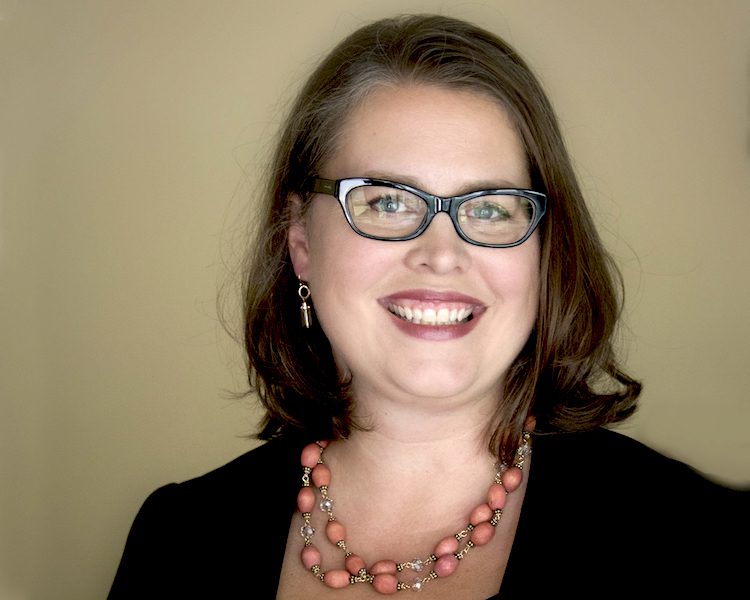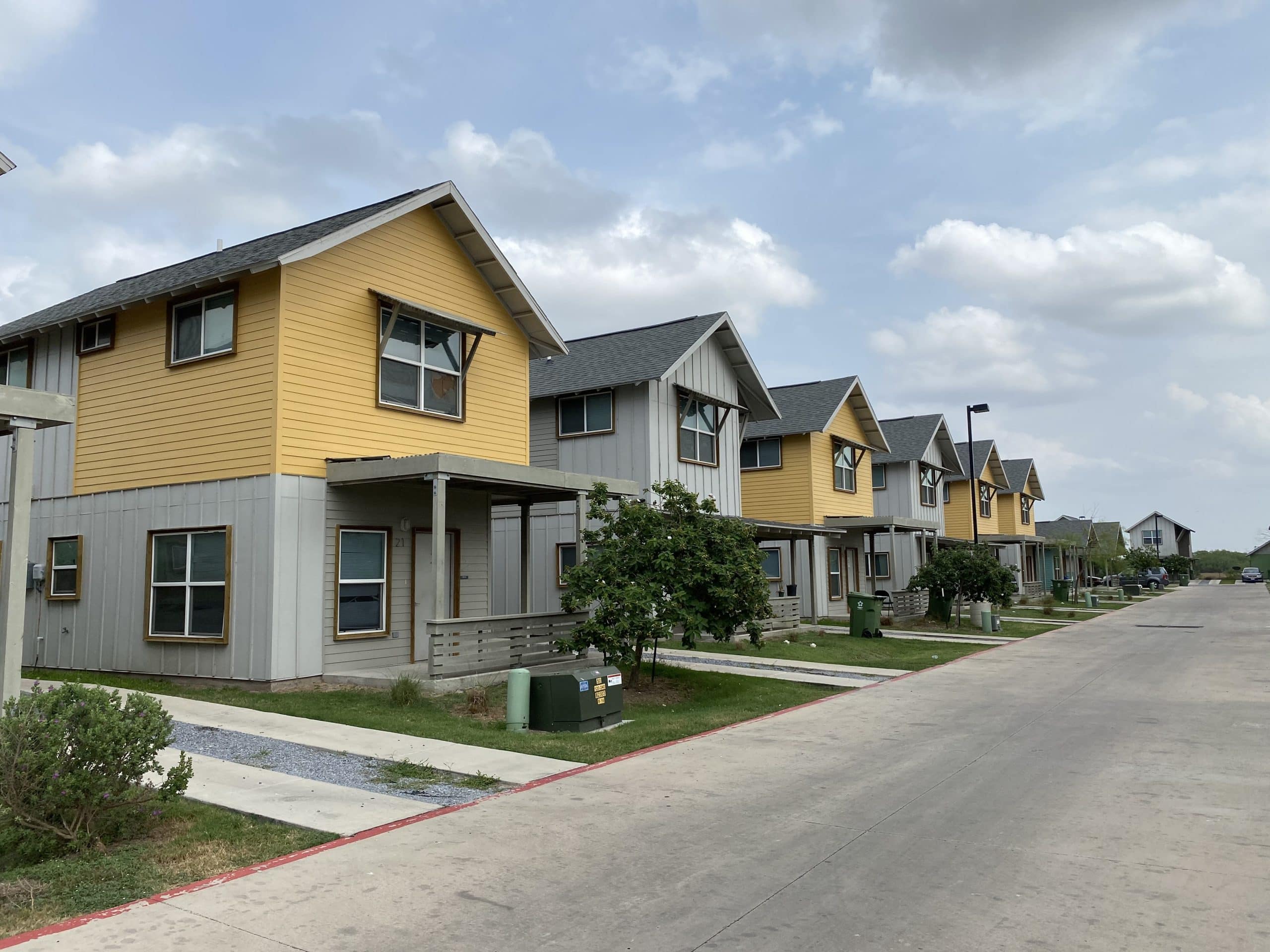
Jeanne Fekade-Sellassie
A new funding collaborative, Funders for Housing and Opportunity (FHO), has just launched. The collaborative, officially a project of the New Ventures Fund, involves (so far) nine foundations—The Annie E. Casey Foundation, Bill & Melinda Gates Foundation, Conrad N. Hilton Foundation, The Ford Foundation, The John D. and Catherine T. MacArthur Foundation, The JPB Foundation, The Kresge Foundation, The Melville Charitable Trust, and the Oak Foundation. We spoke with the group’s program manager, Jeanne Fekade-Sellassie, to find out more about FHO, how it will work, and how it sees its role in fighting the housing crisis.
Harold Simon: Why don’t you tell us a bit about yourself and how you came to this position?
Jeanne Fekade-Sellassie: I have spent the last 20, well closer to 25 years, in housing and community development. I started my career as a Jesuit volunteer, and I was placed at McAuley Institute, which is a small housing intermediary that focused on the housing needs of women and their children. I went from there to work for the Campaign for Human Development, which is a funder of community organizing, and then found myself at NeighborWorks America, where I was for the last 11 years. While I was at NeighborWorks, I started up and ran the National Foreclosure Mitigation Counseling Program, and then my last position there was as the senior vice president for national initiatives.
I come to FHO with a real appreciation for what it takes to get affordable housing built, and also a strong sense that the folks closest to the problem know the solution.
Miriam Axel-Lute: The collaborative is called Funders for Housing and Opportunity. Can you tell us a little bit about why?
Fekade-Sellassie: All of the funders agree that stable housing creates pathways to opportunity, and that too many people in our country don’t enjoy stable housing and the benefits it provides. If you look at research over the last couple of years, it has really shown that people who are stably housed have access to greater opportunity, and these benefits extend to the family, but also to the community level, as well. You’ll find research that shows that stable housing means that children do better in school, seniors are healthier longer, families have less toxic stress and more positive mental health, and emergency room visits are reduced. So, as other sectors try to reach their own positive outcomes, housing is really foundational for that to happen.
Axel-Lute: The word “opportunity” often seems to imply focus on where the housing is located as opposed to the housing itself. Have you had any discussion about that implication, or how you interact with it?
Fekade-Sellassie: This group thinks that opportunity should be created in places where people live, and that people should have choice to move to other neighborhoods if they desire. So, for FHO, it’s really about “and.” We believe that all renters, no matter what their income, should be able to live in a community that’s safe and affordable and provides access to amenities that support better health and better life outcomes, whether that’s where they are now or a place that they would choose to move to.
Axel-Lute: Can you tell us about why the collaborative has chosen to focus on renter households and rental housing?
Fekade-Sellassie: There are more than 12 million households in our country that are considered cost-burdened or homeless, with a shortage of more than 7 million homes that are affordable and available to those folks. The collaborative really wanted to focus in on those who need assistance most, and that would be the people at the lower end of the ladder.
Axel-Lute: Why did the collaborative members decide to come together and do this now?
Fekade-Sellassie: They all recognize that the market alone is not going to be producing housing that people with the lowest incomes can afford, yet we know that when people are stably housed, they have all these better possibilities. And so, the collaborative came together because they believe that reversing the trend on housing and stability requires voices from many sectors, not just the housing sector, and those sectors depend on housing stability to improve the outcomes that they’re seeking. So, although many of the funders in our collaborative are housing funders, some of them traditionally are not, but they do see housing as a platform for better life outcomes.
Simon: That’s interesting. How did they come to that conclusion? What was the key consideration in getting the non-housing funders to be in this collaborative?
Fekade-Sellassie: I wasn’t around in the very beginning, but my understanding is that many of these foundations recognized that the populations they were trying to serve through their own priorities are not going to obtain what they hope for without stable housing. When you look at poverty alleviation, the first step is really to stabilize people in housing that they can afford. In the educational space, children who were not stably housed were not being able to attain as much. In the health space, when someone’s stably housed chronic emergency room uses will go down; seniors will live healthier, longer lives.
I think some of the foundations were seeing that they were also funding housing tangentially. They realized that, in their portfolio, they were making grants not specifically to housing organizations, but many of their grantees’ [work] touched housing.
Axel-Lute: That’s always been true, right? Investing in housing would have always reduced health care costs. Do you have a sense of why there’s sort of a moment where people are starting to make this connection?
Fekade-Sellassie: Well, there’s more research now, more empirical evidence. I would also say that the housing funders aren’t able to do this alone. We’re at a critical moment when we really need more systemic solutions. My funders that are part of FHO believe that by investing in catalytic, systemic solutions, they’ll be able to make some progress. I don’t know if the invitation has been explicit before to other sectors to come join us.
Axel-Lute: Speaking of the catalytic, can you tell us what it means to the group to “catalyze large-scale change,” since that is its official goal?
Fekade-Sellassie: Yes. We have three funding priorities. One of them is policy advocacy and organizing. In that space, we’re really trying to look at supporting national and state-level work to advance policy change in order to make the provision of affordable housing easier; so to provide more incentives for affordable housing to be built. We’re looking at policy change because we all recognize that all the money that these foundations have is not going to build enough units for people to live in. Really we need systemic approaches to make housing more accessible.
Our two other strategies are narrative change and scaling what works. Narrative change is really about posing alternatives to commonly held but misleading beliefs about why housing matters and what affordable housing means, so that we can see housing as a shared public concern, and so that people can see, when housing is affordable, that their neighbors and their neighborhoods are better off because of it. That’s a long-term goal. That’s not going to change overnight, but it’s an important goal that this group wants to invest in.
Axel-Lute: What are some of the narratives that you’re looking to change?
Fekade-Sellassie: We’re working with a consultant now to help walk us through that. But, [for example], when people think of affordable housing, they often think only of negative images of public housing. And there is a racial equity lens that we want to apply to all of this. Housing affordability is important for everyone. There are misconceptions that people who live in affordable housing don’t work. Many people [who] live in affordable housing are elderly or disabled, yes, but the others, the vast majority of them, do work. All people are deserving of a stable, safe place to live.
Simon: Changing narratives is tricky and, as you said, it’s long term. Are you looking at models like same-sex marriage, and cigarettes, where a massive narrative shift was achieved over decades?
Fekade-Sellassie: Yes, the consultant we’re working with comes with that perspective of what it takes to shift, to turn the boat slowly and steadily. We have to determine who our messengers are and who the audience should be. We’re in the initial stages of that right now, trying to figure out if it makes the most impact to work with our housing allies or with those in other sectors, or the general public.
Our third funding priority is scaling what works, which is a little more tangible and a little more short-term than the other two. It’s really about looking for late-stage demonstration projects that have shown some success, and lifting them up and seeing if they can be adapted and replicated elsewhere. So, we funded one grantee in that space. It’s Partnership for Children and Youth, a housing and education demonstration. And we’re hoping to do more in that space around housing and health and housing and economic mobility.
Simon: That’s great. Following up on out catalyzing large-scale, sustainable, long-term change, what scale are we talking about? What do you mean by scale? What’s the scale you’re looking for? And how are you defining it?
Fekade-Sellassie: I would say in this particular instance, it’s really about seeing if something innovative in one place will work in another place. So, I’m not talking about national scale. I’m talking about do things that work in one place have adaptability elsewhere. And if so, how do we support that to grow?
We’ve funded folks to work at both the federal and the state-wide level. We have funded the National Income Housing Coalition to engage in certain states, but also nationally. We funded the Center for Community Change, which is working at the state level, particularly on housing trust funds. And we’ve funded Enterprise and the National Housing Trust to try and raise up the voices of individuals across the country, locally in their communities, and they also have certain states that they’re working in, to help them understand the federal budget and raise their voices regarding the federal budget.
I think that the funders really believe that if funding for federal programs declines, that state and local policy will need to change in order to fill some of that gap. And so we are looking for state and local solutions that could be scaled in other states, similar to the housing trust fund project.
Axel-Lute: Did the idea for this collaborative come before or after the 2016 election?
Fekade-Sellassie: Before. The funders came together about two years ago now for the first time—not all of them, but a handful of them—to think about what they could do together. They were very diligent about hearing the voice of the housing, education, and health care [fields] in particular. They did a series of roundtable discussions where they listened to the voices of the folks in the room, [and] it led them to their funding priorities. They really were trying to remain true to what people thought we needed. And then, I would say, the strategies may have changed a little bit after the election.
Axel-Lute: Some of these funders were not funding housing directly before this collaborative, but for the ones that were, how is what’s happening here different from their individual efforts?
Fekade-Sellassie: That’s a good question. I think that by coming together in this way, some of them have an ability to fund housing in ways they couldn’t individually, because something doesn’t exactly line up with their individual foundation’s priority. So they saw it as a way to align their work [to] leverage kind of the strengths around the room. Those that have funded housing have been able to really inform our thinking, and those that haven’t have added value in that they can help housers see the broader view of how housing impacts communities.
The collaborative is not solely funding programs that the individual foundation members would have funded on their own. Those that are partners in the collaborative see this as a way to learn and inform the strategies back at their foundations so that perhaps they can also align their other funding along the same strategies.
Axel-Lute: Are the funders that had been funding housing programs still going to be doing some of that at the individual level as well?
Fekade-Sellassie: Yes. This is not meant to replace their funding for housing.
Simon: So, do you anticipate that, over time, the members that don’t fund housing directly now will rethink some of their funding strategies so that they still stay to their original goals but connect those things in different ways?
Fekade-Sellassie: Absolutely, yes. That’s one of the goals.
Axel-Lute: Is this an ongoing collaboration, or is it time-limited?
Fekade-Sellassie: Most of the funders have committed to three years, but that doesn’t mean that this will stop after three years. They’ve decided that a three-year commitment shows enough confidence in the direction of FHO, and after three years, we’ll evaluate and see where we need to go from there. But I think they don’t intend to stop funding after three years. It’s just that would seem like a good point to reflect and see if we needed to change priorities.
Simon: That means that you’re going to be doing a lot of assessment and measuring. How are you going to measure these, especially the less concrete narrative change and policy changes?
Fekade-Sellassie: Well, we’ve engaged a consultant to help us figure that out, and we’re meeting on Thursday to set up our evaluation framework. But the ultimate goal is that those 12 million households who are paying more than half of their income on rent or are homeless, that that number decreases instead of increases. And so, our challenge is to figure out how our investments can contribute to that. I don’t think anyone believes that FHO alone will turn the curve, but we do want to be sure that we understand how our investments are contributing.
Simon: You’ve done your first cohort of grantees. Will the next cohort be invited to submit an application, or is there an open application process?
Fekade-Sellassie: It’s a completely fair question that we don’t entirely know the answer to yet. It will either be by RFP (request for proposal) or by invitation. I think it depends a bit on each of the funding priorities and how many new foundations can join. We do expect to expand our membership, and once we do that, we’ll probably know more about our strategy. If we have a lot more money, we’ll probably do RFP. If it remains at this level, we probably would do limited RFPs or invitation-only.
Simon: When did you all actually start the collaborative, and when did you start?
Fekade-Sellassie: I started in August. And the collaborative officially launched just two weeks ago.
Simon: So it’s all new! We’ll have to get you back in a year.
Fekade-Sellassie: Oh yes, see all the great things we’ve done!
Thank you.






I’m glad all of these mega foundations are proud of themselves for putting money back into a broken system. There is no virtue in this garbage. Maybe if their mega rich benefactors (Gates, Hilton and the rest) hadn’t stripped so much tax money out of they system to begin with to enrich themselves (and then shelter even more of their tax money in a freaking Foundation!), government would have enough money to build housing in the first place. I’m not giving flowers and candy to any of these oligarchs and their fake benevolence. Gates could have been working for social and economic justice from the beginning. Our system of foundation and charity support for social ills is immoral and singular in the world. Every other civilized country takes care of its housing and nutritional needs of people without the charity racket. How about they buy Senators to put more money back into the housing system, like they did to give them all personal and business tax breaks that tore giant holes in the economy and wealth of the country to begin with. I’m sick of taking scraps from criminal enterprises like Wells Fargo (create millions of foreclosures and then give out a pittance from your ill gotten gains for housing counseling that basically makes the BANKS whole) and these clowns, just because that’s the way our corrupt system works.
Rant continued…. When the US economy was the strongest, federal tax contributions from corporations was 32%. Today, after the latest round of tax cuts (backed by these very donors), corporations will pay less than 8%. The top 1% (foundation benefactors) own 90% of US wealth. The U.S. middle class had $17,867 less income in 2007 and wages of top 1% of earners has gone up 138%. Gee, I wonder why we have a problem with housing, nutrition, child care, etc. etc. Taxes have shifted to the middle class, and essentially starved federal, state and local governments (wonder why college tuition has gone up so much? $12 trillion has been stolen from American workers because of the greed and corruption of these oh so virtuous benefactors. 3 years of housing. Awesome. You can get an award for your benevolence. Disgusting.